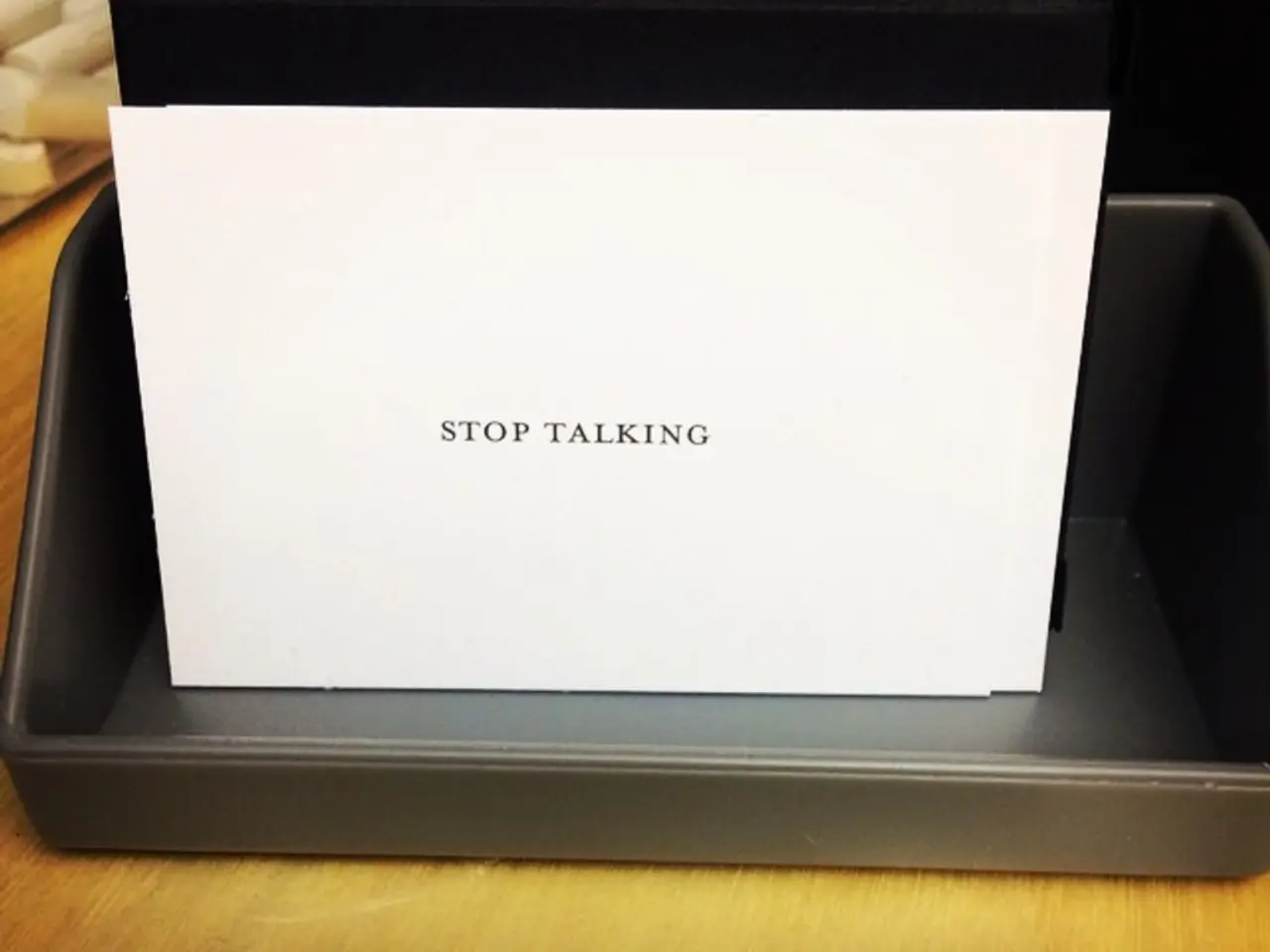Eight apparently polite expressions that can, in reality, be condescending:
In our daily interactions, it's not uncommon to encounter phrases that, while initially appearing polite, conceal underlying resentment. These condescending phrases, as Sherrie Hurd, a renowned mental health advocate and survivor of childhood trauma and multiple types of abuse, points out, can cause harm, regardless of intent.
Hurd, who manages multiple mental illnesses, including anxiety disorder, bipolar disorder, and PTSD, and has over 20 years of experience as a professional writer and artist, encourages us to strive to be better and do better. She believes that changing our mindset to be kinder can help change the world one step at a time.
Examples of such condescending phrases include "You wouldn't understand," a presumptuous statement that creates a barrier and implies the other person lacks the capacity to comprehend the topic, excluding them from the conversation. Another example is "I'm just joking," a phrase often used to cover up hurtful comments and belittle the feelings of others.
"How cute" is another condescending phrase that downplays someone's success and makes it seem like a trivial task. "It's not a big deal" fails to validate emotions and implies that someone is overreacting to a situation. "Bless your heart," a phrase often used in the southern United States, implies that the person cannot do things right. "You look good for your age" is not a genuine compliment, but a fabricated one to appear genuine.
"It's just common sense" can make people feel belittled and embarrassed, as it implies they should already know what is being said. Hurd suggests that considering how a condescending phrase would feel if directed at oneself can help in stopping the use of such phrases.
To avoid using condescending language, Hurd offers some practical advice. Replace "You wouldn't understand" with patient explanations and invite questions to foster inclusive dialogue. Instead of "I don’t have time for this," acknowledge your current limits politely, such as "I'm swamped right now, but let's talk later when I can give it my full attention."
Communicate with mutual respect, demonstrating confidence in both parties, and avoid oversimplifying or using a patronizing tone. Be mindful of the tone and words chosen, focusing on supportive and inclusive communication rather than superiority or dismissal.
By consciously choosing respectful, inclusive language and tone, one can maintain positive relationships and avoid alienating others through condescension. Hurd encourages us to put ourselves in someone else's shoes and to never say things to others that would hurt them. Let's all strive to be kinder, more understanding, and more mindful of our words.
- In the realm of education-and-self-development and personal-growth, striving to understand others better can significantly impact one's mental health and overall lifestyle.
- Hurd's advocacy extends beyond the realm of mental health, encouraging us to approach life with kindness, empathy, and intelligence, especially in our relationships with others.
- When faced with the urge to use condescending phrases, such as "You wouldn't understand" or "It's just common sense," it's beneficial to consider how these phrases might affect one's own feelings and self-worth, and to strive for more supportive and inclusive communication.
- By nurturing a mindset focused on fostering understanding, empathy, and kindness, we can contribute to the improvement of our own mental health, build stronger relationships, and promote a culture of respect and personal-growth.




